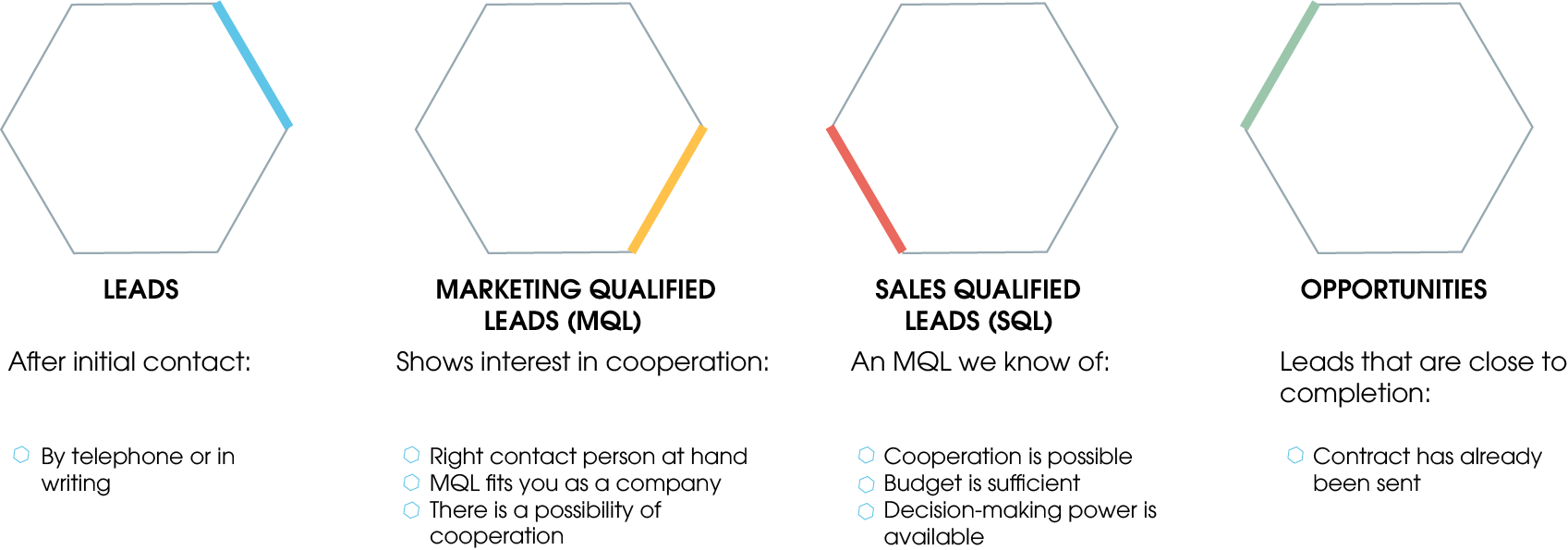
Finally it's starting again! Meet eos at the OMR Festival in Hamburg. 🥳 ... Continue reading

In sales, we speak of a lead when a new contact has been established with a potential customer. This means that the customer has already shown interest in your company, your service or your product. To actually count as a lead, it is important that the prospect provides his contact information for further dialog.
Since high quality contacts are immensely important in the field of new customer acquisition, they are divided into different categories according to their conversion probability:

The contact becomes a lead after the initial contact is made. This may have come about in a number of ways:
A Marketing Qualified Lead (MQL) is a contact who shows interest in working with you. You have generated this lead through the initial contact. It fulfills requirements such as the right contact person or an opportunity for collaboration.
The Sales Qualified Leads (SQL) is a former MQL where a cooperation is possible. Likewise, the contact is also the person in the company who can make decisions and the budget is sufficient for collaboration.
Opportunities are close to finalizing the contract. All conditions have been discussed, so only the last step is missing.
Lead nurturing is the process by which the prospect is targeted to receive exactly the information that interests them at the current stage of the buying decision. The difference to classic marketing is that the information is no longer actively sent to the customer (e.g. via a newsletter), but is instead provided on the website in the form of an e-book or whitepaper, for example. The more attractive and informative the content, the greater the likelihood that users will disclose their data, such as name, e-mail address, etc.
The cost of acquiring new customers is easy to calculate. To do this, you divide the cost of lead generation by the number of leads received:

Only if you know your CPL, you can evaluate your marketing measures and optimize them accordingly. There is no standard value for the average CPL, as this depends heavily on the industry, the target customer and the competition. In marketing, all costs for strategy development and optimization are also incurred. There are also costs for creating landing pages and for promotion such as Facebook and Instagram ads. To use your marketing budget effectively, you should identify channels with low costs and target them aggressively. The more evenly you allocate your marketing budget to low-cost channels, the more customers you will attract per fixed budget amount.
Olga Fedukov completed her studies in Media Management at the University of Applied Sciences Würzburg. In eology's marketing team, she is responsible for the comprehensive promotion of the agency across various channels. Furthermore, she takes charge of planning and coordinating the content section on the website as well as eology's webinars.
You want to learn more about exciting topics?
